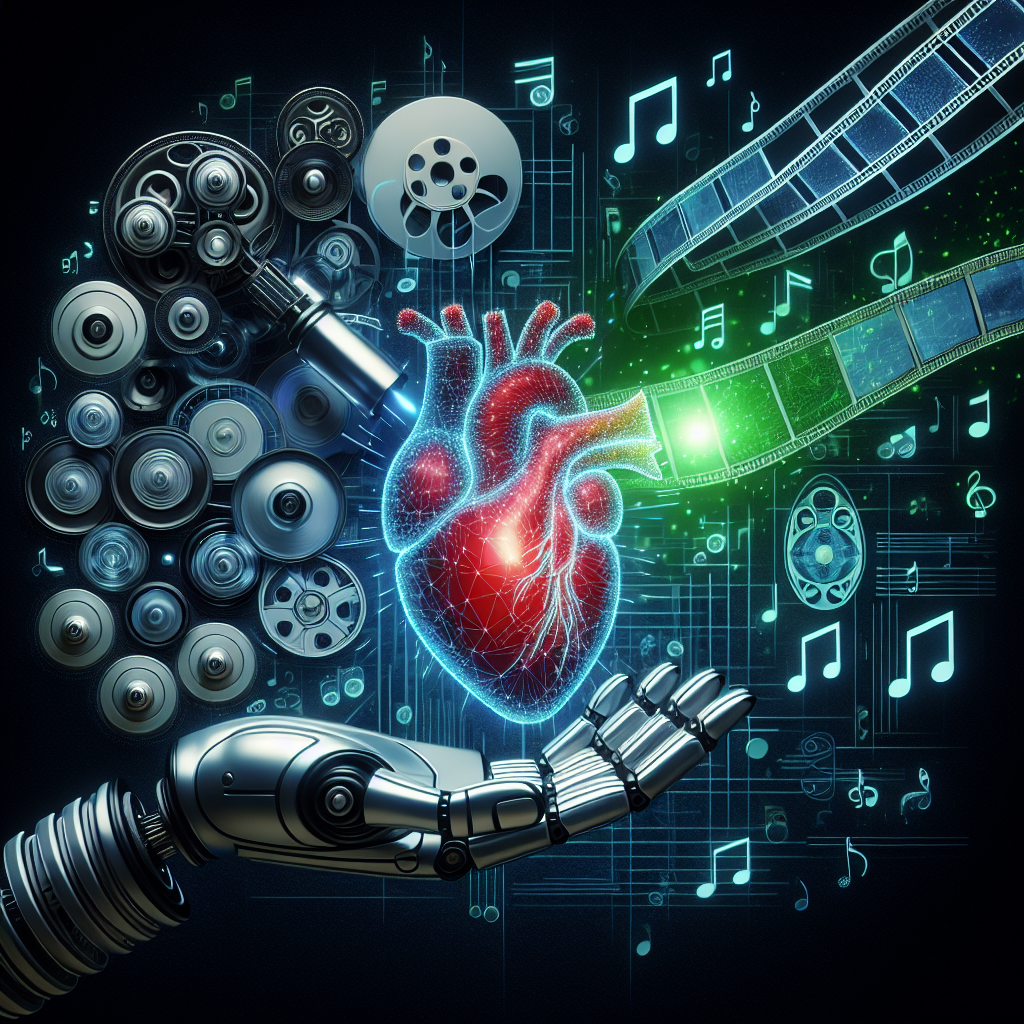AI and Improving Mental Health in the Entertainment Industry
The entertainment industry is known for its glitz and glamour, but behind the scenes, many individuals in the industry struggle with mental health issues. From actors and musicians to producers and directors, the pressure to perform and succeed can take a toll on one’s mental well-being. However, with the advancements in artificial intelligence (AI), there is hope for improving mental health in the entertainment industry.
AI has the potential to revolutionize the way mental health is approached and treated in the entertainment industry. By leveraging AI technologies, mental health professionals can gain valuable insights into the mental health of individuals in the industry and provide personalized and effective treatment options. In this article, we will explore how AI is being used to improve mental health in the entertainment industry and the potential benefits it can bring.
AI in Mental Health
AI has already shown promise in the field of mental health. From diagnosing mental health disorders to providing personalized treatment options, AI has the potential to transform the way mental health is approached and treated. In the entertainment industry, where individuals face unique stressors and pressures, AI can play a crucial role in improving mental health outcomes.
One of the key ways AI is being used in mental health is through the development of chatbots and virtual assistants. These AI-powered tools can provide individuals with a safe and confidential space to express their thoughts and feelings, receive emotional support, and access resources for mental health treatment. By leveraging natural language processing and machine learning algorithms, these chatbots can provide personalized recommendations and interventions based on an individual’s unique needs and preferences.
AI is also being used to analyze data and identify patterns and trends in mental health. By analyzing social media posts, online interactions, and other digital data, AI algorithms can identify individuals who may be at risk for mental health issues and provide early interventions. This proactive approach can help prevent mental health crises and improve outcomes for individuals in the entertainment industry.
In addition, AI is being used to develop virtual reality (VR) and augmented reality (AR) applications for mental health treatment. These immersive technologies can provide individuals with a safe and controlled environment to practice coping skills, confront fears, and address trauma. By combining AI algorithms with VR and AR technology, mental health professionals can create personalized and engaging experiences that promote emotional healing and well-being.
Benefits of AI in Improving Mental Health in the Entertainment Industry
The use of AI in improving mental health in the entertainment industry offers several benefits, including:
1. Personalized Treatment: AI-powered tools can provide individuals with personalized treatment options based on their unique needs and preferences. By analyzing data and identifying patterns, AI algorithms can recommend interventions that are tailored to an individual’s specific mental health issues and goals.
2. Accessibility: AI-powered chatbots and virtual assistants can provide individuals in the entertainment industry with 24/7 access to mental health support. This can help individuals access care when they need it most, regardless of their location or schedule.
3. Early Intervention: AI algorithms can analyze data and identify individuals who may be at risk for mental health issues. By providing early interventions, AI-powered tools can help prevent mental health crises and improve outcomes for individuals in the entertainment industry.
4. Stigma Reduction: AI-powered tools can provide individuals with a safe and confidential space to express their thoughts and feelings without fear of judgment. This can help reduce the stigma associated with mental health issues in the entertainment industry and encourage individuals to seek help.
5. Engaging Experiences: AI-powered VR and AR applications can provide individuals with engaging and immersive experiences that promote emotional healing and well-being. By combining AI algorithms with immersive technologies, mental health professionals can create therapeutic experiences that are both effective and enjoyable.
FAQs
Q: How can AI help individuals in the entertainment industry with mental health issues?
A: AI can help individuals in the entertainment industry with mental health issues by providing personalized treatment options, accessibility to mental health support, early interventions, stigma reduction, and engaging therapeutic experiences.
Q: What are some examples of AI-powered tools for mental health in the entertainment industry?
A: Examples of AI-powered tools for mental health in the entertainment industry include chatbots and virtual assistants for emotional support, data analysis algorithms for identifying individuals at risk, and VR and AR applications for immersive therapy.
Q: Are AI-powered tools for mental health in the entertainment industry effective?
A: Studies have shown that AI-powered tools for mental health in the entertainment industry can be effective in improving mental health outcomes. By providing personalized treatment options, accessibility to support, early interventions, stigma reduction, and engaging therapeutic experiences, AI-powered tools have the potential to transform the way mental health is approached and treated in the entertainment industry.
In conclusion, AI has the potential to revolutionize the way mental health is approached and treated in the entertainment industry. By providing personalized treatment options, accessibility to mental health support, early interventions, stigma reduction, and engaging therapeutic experiences, AI-powered tools can improve mental health outcomes for individuals in the industry. As AI continues to evolve and integrate with mental health care, the entertainment industry can look forward to a future where mental well-being is prioritized and supported.

